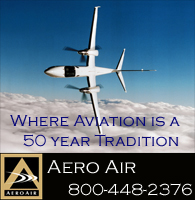Although much of a Twin Commander technician’s learning happens on the job, formalized factory-approved training is a requirement for those working at a Twin Commander Factory Authorized Service Center. Normally an eight-day in-person experience, instructor Mike Grabbe has had to improvise during the worldwide pandemic.
Grabbe is a technical advisor for Eagle Creek Aviation Services in Indianapolis. He’s been teaching the course at the company for seven plus years. Needless to say, this is the first time he’s had to face worldwide travel restrictions. “Most mechanics are tactile learners,” he said. They want to be able to touch, push, pull, and prod the things they are working on. Although much of the training is spent in a classroom, Grabbe has a variety of bits and pieces he uses to help convey the information as well as any aircraft in the shop at the time of the class. That’s hard to do when you’re not in person. “It’s one thing to speak and do Powerpoint,” he said. “It makes a heck of a difference when they can go and touch it and see for themselves.”
Because of the travel restrictions Grabbe had to cancel a class scheduled for April. He’s working now with five of the participants to try and reschedule it for sometime in the next few months. Although the class is designed for up to 12 students, five is the most Eagle Creek can handle because of social-distancing guidelines.
Recurrent training is more flexible. Grabbe was able to conduct a class online for a fleet operator at the beginning of March because all the technicians had extensive Twin Commander experience.
Currently there is an in-person class scheduled for September 21 through 30. The class runs a full eight days with another half-day for testing. “Open wide and here it comes from a fire hose,” Grabbe said. “Basically, everything that’s in the airplane is covered. About the only thing I don’t cover is interiors.” “Everything” includes service publications, inspection programs, landing gear, flight controls, electrical system, fire suppression, annunciators, environmental systems, fuel, and engines. Because EASA does not count exam time as training time, the class is now an eight day event to accommodate technicians under EASA rules. Technicians working on European-registered aircraft will need an additional 30-hour engine-specific class, and some practical hands-on experience at home to complete the training.
Grabbe has decades of teaching technicians how to work on Twin Commanders. After many years as a floor mechanic for various operators he taught in a FAR 147 approved A&P school for more than nine years, and then the Twin Commander course at FlightSafety for more than six years.
For more information about Twin Commander maintenance training, contact Eagle Creek at 317-293-6935.




